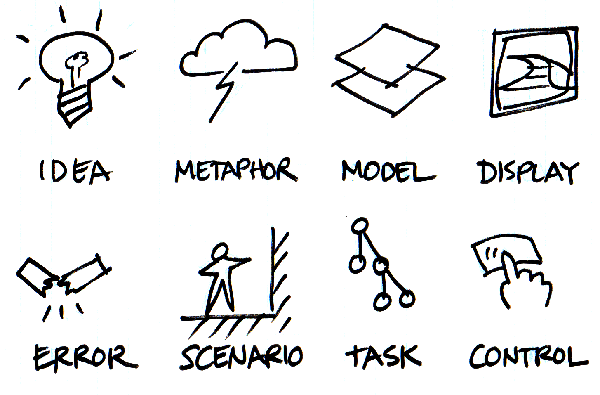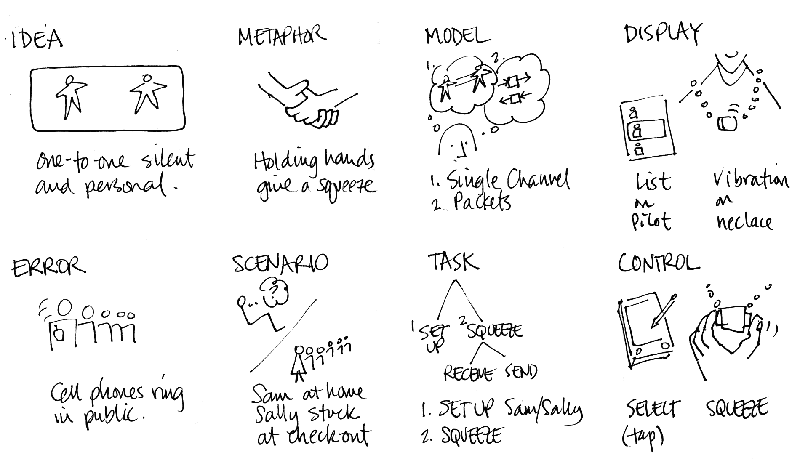Interaction Design Framework
A Framework for Interaction Design
by Bill Verplank
Using the following framework sketch your own term-project idea. I use it as a checklist to make sure that I am considering all the important perspectives in an interaction design project. It is especially useful in the early stages because the design might start from any of the eight perspectives.

I will illustrate the framework with Celine Perrin's project for Music250a/CS377b CHI Technology: a two-way "Haptic Pager". The ERROR or annoyance is that cell phones ring in public. Her IDEA is a one-to-one silent and personal link: when holding hands, give a squeeze (METAPHOR). One SCENARIO has Sam at home wondering if Sally is just stuck in a check-out line at the store.

The necessary users' conceptual MODEL is to think of it as 1. A Single Channel where Sam and Sally are directly connected, and 2. Packets which are sent out, and at some time latter, replies are received. The corresponding TASK involves a SET-UP mode where the Sam/Sally link is chosen and then a SQUEEZE mode where haptic messages are exchanged. A proposed DISPLAY shows a list of people and the corresponding CONTROL is selecting with a tap of the stylus. The vibrator DISPLAY might be on a necklace for receiving and the CONTROL would be a squeeze of the necklace for sending.
The important thing about the framework is to use it as a check on the balance of approaches from invention to implementation and from overviews to details. It is not intended as a strict ordering of the invention and design process. Most of the projects from the class actually start with some sort of CONTROL idea and only later considered whose problem they might be solving.
With each perspective, alternatives can be considered. For example, how would the product change if it was being designed for a mother with three kids or an elderly parent living alone? What if the metaphor was dancing or arm-wrestling? The framework is also useful in communicating a finished design but my preference is to focus on quick sketches in early stages of design. That is where computers provide the least support and where new tools and techniques might focus.